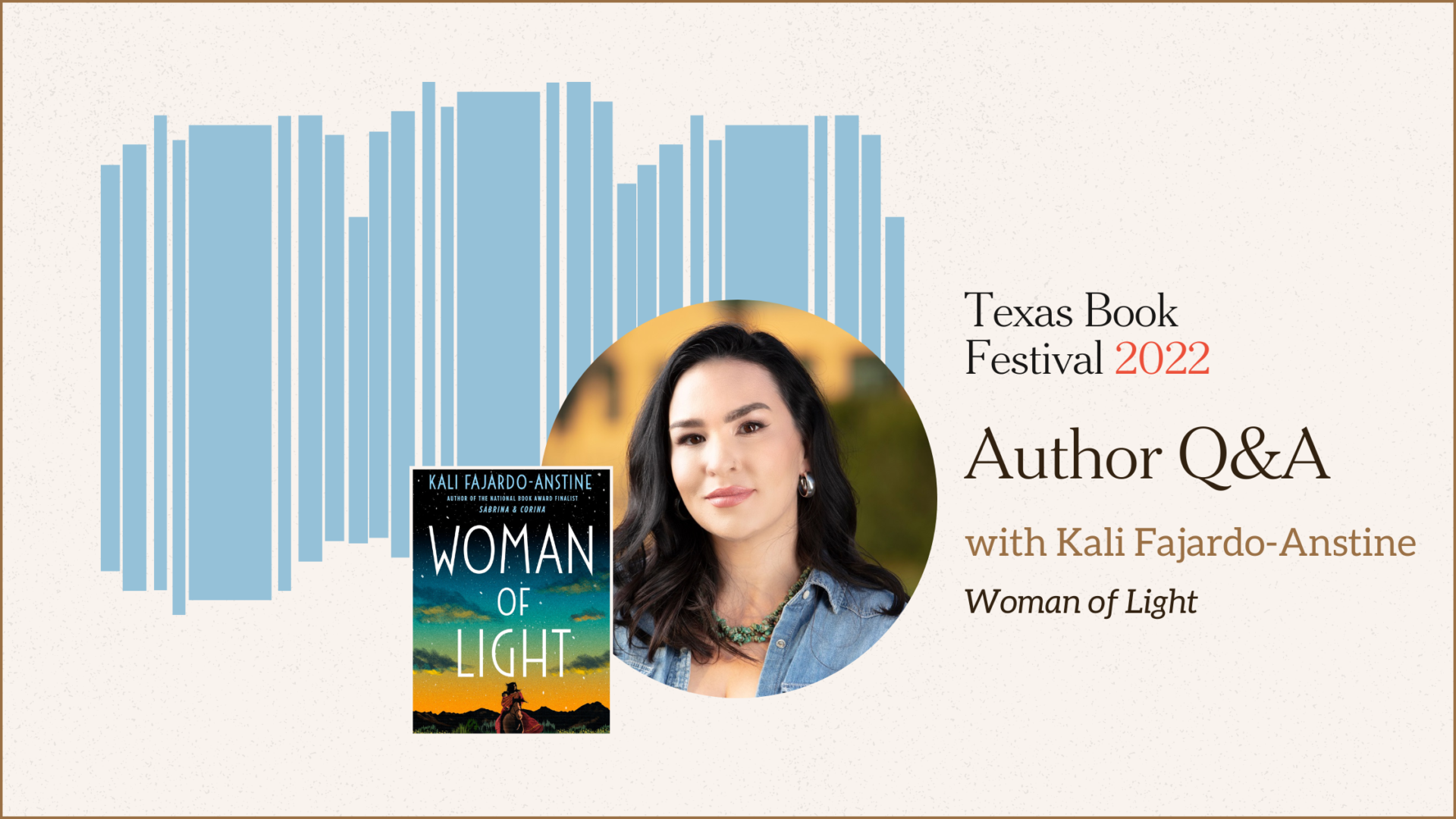Kali Fajardo-Anstine is the author of the novel WOMAN OF LIGHT.
TBF: Why did you write your new book? What was your inspiration? Where did the idea start?
KFA: I wrote Woman of Light because my Indigenous, Mexican, and Filipino ancestors lived enormous lives, but they were never the stars of novels, movies or TV shows. My elders loved movies and storytelling, but all the classic Western films we watched portrayed the lives of white men and women in the American West. I wanted to honor my ancestor’s wildly entertaining lives. I wanted them to be the stars.
Woman of Light began with the larger-than-life stories of my elders. My great grandma Esther (Picuris Pueblo descendant) talked incessantly about walking north to Denver from the mining camps of Southern Colorado in the 1920s after she and her siblings were abandoned by their Belgian father. I heard stories of my snake charming uncle, my proudly butch auntie who provided for her siblings, and my Auntie Lucy who at seven-years-old sold hash to flappers on Denver’s streets. I heard tales of their lives in the sugar beet fields, their dance halls and beautiful handmade gowns, and the ugliness of the prejudice they faced once coming to the city.
TBF: How would you describe your book?
KFA: Woman of Light is my heart song to my ancestors. An epic novel inspired by classic Westerns and old Hollywood, this character-driven book is a tribute to my American homeland and the culturally diverse people who created me. It’s also my attempt to provide greater historical context for the lives of Latinx people of Indigenous descent in the American Southwest, as so much of our history has been ripped from us. It is a story of love, fate, desire, and what it means to be human, to make mistakes, and to learn about who we are.
TBF: How long have you been at work on this book? Did the book involve special research?
KFA: As a teenager, I dreamed of writing a family saga based on my people. I started Woman of Light in 2010, and I began heavily researching in 2015 when I taught at Fort Lewis College, a former Indian Boarding School in Durango, Colorado. I was deeply saddened teaching on that mesa of historic trauma, but it was in that place that I began to distinctly feel connected to the older generations of my family. In the past decade, my research has taken me throughout the American West, from New Mexico to Wyoming and into the archives and homes of my elders. There is a magnitude of research in this novel, but there are also moments of divine luck and awe-inspiring coincidences. I feel this is the book I was born to write.
TBF: How is this book similar or different from your previous work?
KFA: Woman of Light is an extension of the fictional universe in Sabrina & Corina. The women of my first book are the great grandchildren of characters like Luz and Diego in Woman of Light. Denver is featured prominently in both books, and my fictional town, Saguarita, makes an appearance. My writing is guided by the need to feel culturally seen and acknowledged as a vital part of the American identity. For much of my life, I felt invisible and as if the hardships of my ancestors were forgotten. This is a novel that grapples with our space in American history in a way that has never been seen before. This is my life’s work, and I will continue to write novels and short stories that illuminate the lives of my people in the American West for as long as I am capable.
TBF: Can you talk about some of the real life history behind the book?
KFA: I grew up seeped in myths of the American West. I am drawn to figures like Annie Oakley who acquired her sharpshooting skills as a child out of necessity to hunt for her siblings and widowed mother. My mother would tell stories of the Apache woman-warrior, Lozen, who could feel the direction of the enemy on her palm. My own Auntie Lucy spoke of hiding against the floorboards of their Denver tenement as the Ku Klux Klan marched by outside their windows.
And like the characters in Woman of Light, my own ancestors and many elders in my community have stories of being beaten for speaking Spanish and their indigenous languages in school or public.
TBF: Who do you see as fans of your book? What are the three things you most hope they will take away after reading it?
KFA: This book is for fans of Elena Ferrante, Isabel Allende, Anthony Doerr, Michael Ondaatje, Kazuo Ishiguro, Cormac McCarthy, Gabriel Garcia Marquez, and television fans of Breaking Bad and Boardwalk Empire. But it’s also for the many lovely and loyal fans of Sabrina & Corina.
I want readers to have a greater sense of Indigenous and Chicana subjectivity and a stronger understanding of the true history of the American West.
I hope readers finish this book feeling that we are all capable of strength and love despite the hatred of our world. But most of all, I hope my readers feel less lonely and inspired to learn more about their own family history.
Catch Kali Fajardo-Anstine on Saturday, November 5 at the State Capitol E2.028 from 1:15 – 2:00 at the 2022 Texas Book Festival!

